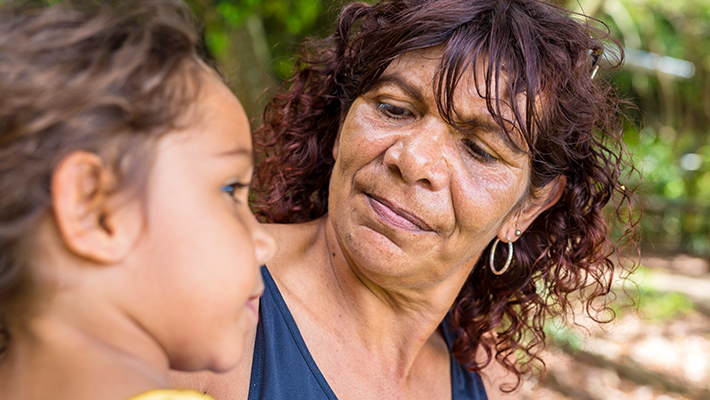Researchers in the Centre for Research Excellence in Cervical Cancer Control (C4), a multi-institute collaboration, have received more than $4.4 million in funding from the Australian Government for three world-leading projects that will help eliminate cervical cancer and support the career development of emerging cancer researchers.
As announced by Minister Greg Hunt this week, the funding will identify new and innovative approaches to increase participation in the National Cervical Screening Program (NCSP).
C4 lead investigator and Director of the Daffodil Centre, Professor Karen Canfell said, “This research will accelerate Australia’s progress towards the elimination of cervical cancer as a public health problem.
“Australia is already on track to be the first country in the world to eliminate cervical cancer, but there are some groups that are being left behind by our efforts. These projects will help increase participation in cervical screening in these groups to ensure Australia reaches elimination in a more equitable way,” said Professor Canfell.
“The three studies will support cervical screening participation in general practice, for Aboriginal and Torres Strait Islander people, and for people living with an intellectual disability,” concluded Professor Canfell.
On 1 July 2022, changes to the NCSP will come in effect that will provide all people eligible for cervical screening with the choice to collect their own screening sample if they prefer. The step has been regarded as a ‘game changer’ for improving screening participation populations where screening rates are lower.
Dr Claire Nightingale (University of Melbourne) and Associate Professor Megan Smith (the Daffodil Centre) are co-leading a project to improve the implementation of self-collection through general practice. This work will develop tools to support decision-making and explore alternative service delivery models to further improve access to cervical screening
“Self-collection will help overcome the barriers that prevent some people from participating in screening by providing a new option that offers greater control over the process. Our project will focus on ensuring this option is widely and equitably available,” said Dr Nightingale.
“Improving screening participation is critical to ensure elimination of cervical cancer is a reality for all Australians. In this work, we’re looking forward to working with policymakers and providers to make the most of the opportunity that the universal option of self-collection will provide,” added Associate Professor Smith.
Torres Strait Islander researcher, Associate Professor Lisa Whop (Australian National University), is partnering with researchers and Aboriginal and Torres Strait Islander health organisations and communities to co-design and implement community driven strategies to increase cervical screening. Embedding the option of cervical screening by self-collection into community health will be a key element of this work.
“This grant will enable us to engage more Aboriginal and Torres Strait Islander people in cervical screening in a culturally safe environment led by and for Aboriginal and Torres Strait Islander communities.” said Associate Professor Whop.
Professor Deborah Bateson (Family Planning NSW) will lead a project in partnership with researchers and peak disability organisations that will identify ways to increase engagement in the NCSP for people with intellectual disability. The team will co-design and trial information and training resources for people with an intellectual disability, their carers, GPs, and disability support workers. This will assist people with an intellectual disability to participate in cervical screening.
Professor Bateson said, “People with intellectual disability are less likely to participate in cervical screening, and experience multiple barriers to access. Specialised training for GPs will help ensure people with intellectual disability understand the procedure, feel safe, and can provide informed consent to screening.”
About C4
The Centre for Research Excellence in Cervical Cancer Control (C4) is funded by the National Health and Medical Research Council (NHMRC), Australia’s leading research funding body. The C4 collaboration and infrastructure, which involves four key institutions and multiple collaborating partners, enables innovative, important and timely research to accelerate Australia’s progress towards the elimination of cervical cancer as a public health problem.
C4 brings together Australia’s leaders in cervical cancer control, in both HPV vaccination and cervical screening, with researchers from the Daffodil Centre, Australian Centre for the Prevention of Cervical Cancer, Kirby Institute at UNSW Sydney, the University of Melbourne and Family Planning NSW. The prior work of C4 investigators has underpinned Australia’s major innovations in public health in terms of the successful delivery of HPV vaccination in girls and boys and the implementation of an HPV-based cervical screening program.



